My Life: What it is like to be a second generation immigrant
Photo courtesy of the Kouferidji family
Rahim Kouferidji and his father sit in front of a restaurant.
Growing up, I’ve always been different from the rest. Living in North Riverside, I have consistently been one of the only black kids in my class, and also of course, the only Muslim. Not being able to talk to another person you relate to can be lonely and frustrating. I like to think that I’ve adapted well to my surroundings, but there are times where I wish there was another person with a similar background that I could talk to. I’d like to think that we’d be close friends.
Nowadays, in our society, I feel that tension between contrasting groups is at an all-time high. Whether it be political or racial, there seems to be a new controversy every day, and it’s extremely disappointing to see what we’ve become. Disagreements have become violent, and rarely are people willing to see the other side of an argument. What people need to realize is that differences among groups should be accepted, or at the very least, tolerated. Whether or not we see eye to eye on topics, a group of people should not be hated and prejudged unnecessarily. I know all too well what it feels like to be an outcast in your community. Allow me to share my story.
About 17 years ago, my mother emigrated from the Ivory Coast in West Africa to Illinois and gave birth to me. After living in the Ivory Coast for about two years, we returned to the States and moved in with my aunt, whom we live with today. My father stayed in Benin, another country in West Africa, to try to get his media company off of the ground.
Although my mother was a respected worker in the medical field in her home country, the US would not accept her degrees. Unable to go back to school here, as a result, she became a hairdresser, and now works at a hair salon with my aunt to this day. It is unfortunate, but it’s a reality that many immigrants face these days. The transition between countries is a taxing one, and the cultural divides that exist make it seem as if you’re moving to another planet.
My entire family speaks French fluently, making me the only one in my family whose first language is English. Moving to the US, overcoming the language barrier was difficult for my mother and aunt, but a necessity. Personally, I can understand French well, but speaking and writing it is another matter. I have made great progress however, by taking French courses at school for years.
In addition to being full-blooded Africans, my family also practices the religion of Islam. The reactions when I tell people my religion can vary: some are shocked, some ask questions, and others proceed to make jokes. I used to be annoyed by this behavior, but I soon realized that these responses are not their fault. The majority of Americans are not properly educated on the religion, and as a result, most people go off of what they see in the media or certain stereotypes. Now, I embrace my religion, and I use these opportunities to educate those who do not know better.
Culturally, there are many things that I do differently from the people in my community. Because I am Muslim, I have to do things that other people don’t have to do, such as pray five times a day and not eat pork. Doing things like having to watch what I eat can be tedious at times, but it’s something that I’m required to do, despite what other people think or suggest.
Growing up without my father has been difficult for me, as well. Don’t get me wrong: I still talk to him almost every day, but not having a father figure through the biggest moments in my life has been disappointing. As a result, I’ve had to teach myself how to tie a tie and learn things that should’ve been taught to me by another man. We see each other about once or twice a year, but sometimes I feel like I barely know him.
Because I have family all over the world, I am an avid traveler. This past summer, my mother and I traveled to Benin to visit my grandfather, who had fallen very ill, and to see other family members. It was my first time back in Africa in two years, but I still thought that I was prepared for the culture shock that I would experience. In reality, I wasn’t.
While there, I felt that I was operating at a different speed than everyone else. I realized just how materialistic I am, and I’m ashamed for the way I acted during the trip. The vacation taught me to be more grateful, as many people over there long for the opportunities I have at home. Although I am not wealthy, I now know that I should not complain, as there are others who get by and live with less than what I have.
My trip also taught me the values of family: a key component in all African cultures. Family, above all else, is the most important thing in life, and you should never take any of your family members for granted because you never know when they’ll be gone. I finally understood that when my grandfather passed away shortly after we returned to the US.
Even though I am so different from my peers, I don’t let any of my differences hold me back. I have excelled both academically and socially, and above all else, I have developed thick skin and know how to handle tense situations.
Living in a predominantly white community, sharing my cultural differences can be uncomfortable for me. I am not ashamed of my heritage by any means, but choosing to stick out like a sore thumb can be awkward and cause me to feel isolated. When all eyes are on me, I get nervous, even though I know that I shouldn’t be. However, I realize that I need to get better with this, and I should never be afraid to stand out, no matter what other people may think.
So far, you’re probably wondering why I’m telling you all of this. Well right now, I feel that some people think that it’s a bad thing to be different, especially in this day and age. With political and racial unrest being more prevalent than ever, it’s almost as if having different backgrounds and beliefs means that you cannot get along with someone.
Although it sounds cliché, we as a society need to learn how to love each other, or at the very least understand each other. Taking the time to learn about someone so that you can tolerate and accept their viewpoints is only going to make you a better person.
So let’s stop shooting, fighting and arguing with each other about who is right because none of us are. Why don’t we all have civil conversations about race, culture, gender, etc., and know all of the facts before we immediately form an opinion? Even if we disagree with each other, why don’t we agree to disagree?
Either way, no matter what you think after reading this, I hope you at the very least take away this: being different should be celebrated and embraced. Not discouraged.
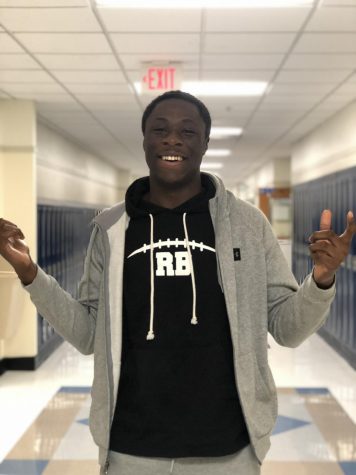
After a one-year hiatus, Rahim "The Dream" Kouferidji is back, and better than ever. Training in the frozen tundra, struggling through the hottest deserts,...


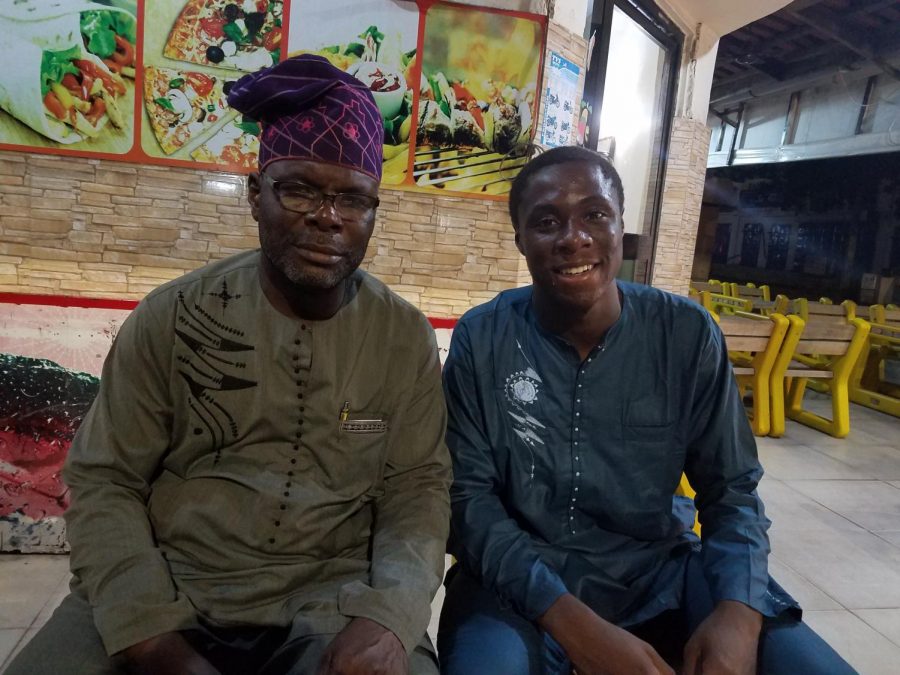

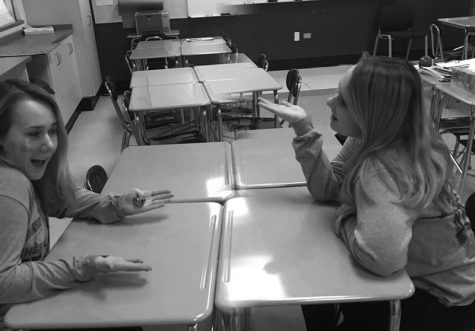
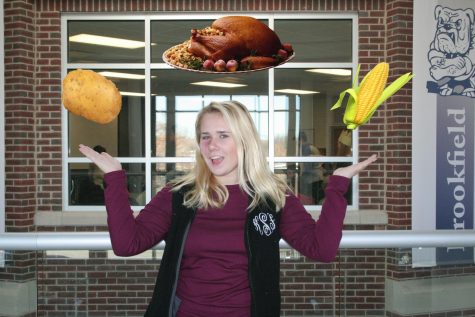
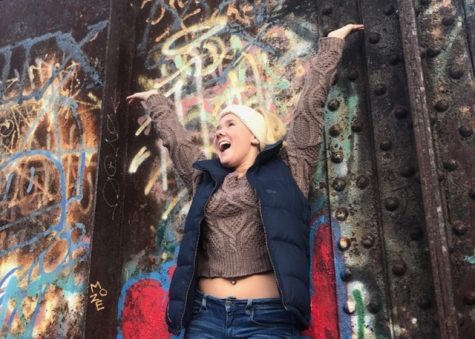

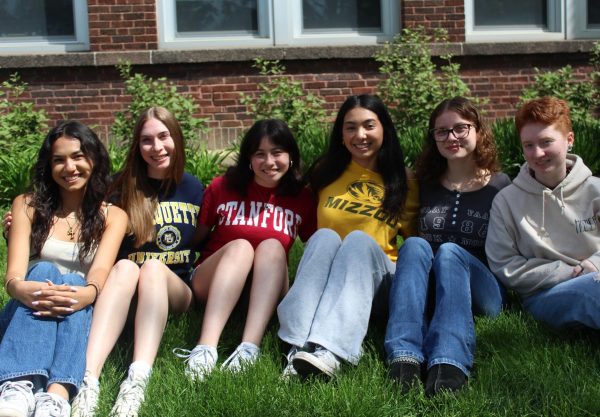
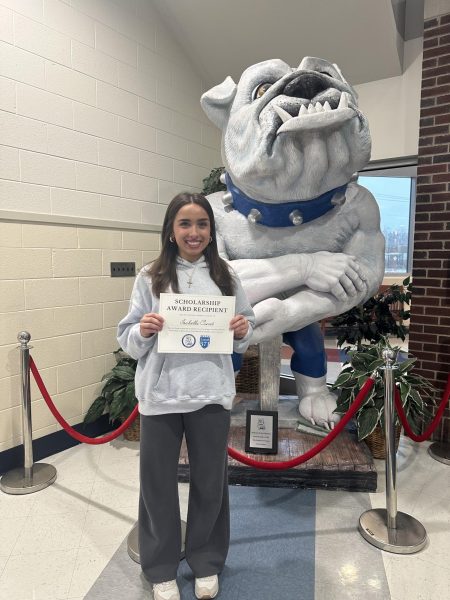
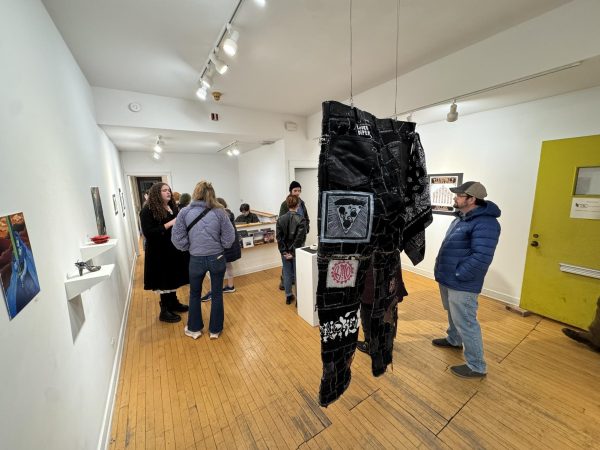
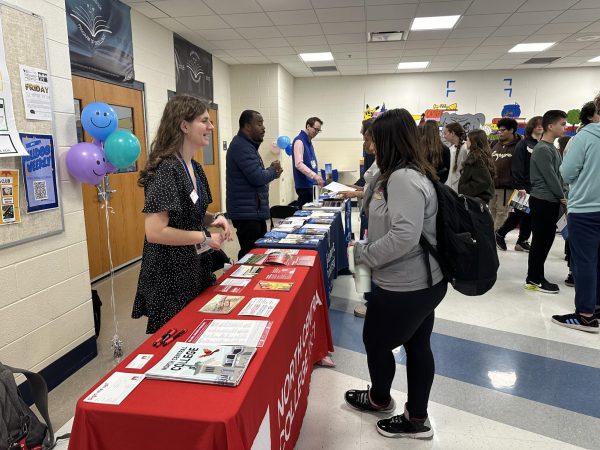
Laurence Forberg • Mar 21, 2020 at 2:05 pm
This is a wonderful article that celebrates your differences and similarities, your integration and your inner thoughts about it, how it is easy, yet difficult, how it pains because, you feel not from here, yet not from there either. I thoroughly appreciated reading your truthful account. I command you for sharing such deep, inner feelings with so much maturity, it cannot be easy to write like this for a whole community, especially when in high school.
I am so grateful I have had the chance to teach you for the past four years, to see you grow as a strong role model in the school but also to develop as a leader in my classes . You peers recognize your academic fortitude but also your mature outlook on life. They all respect you for your stamina and moral strength. Congratulations for taking so many risks and putting your heart out there. And thank you for being such a great, curious, engaged and reflective student.
Mary Jahnke • Nov 12, 2019 at 5:31 pm
You are a wonderful young man with many athletic and academic talents . Above all, you are respectful and supportive of others You are a true Bulldog!